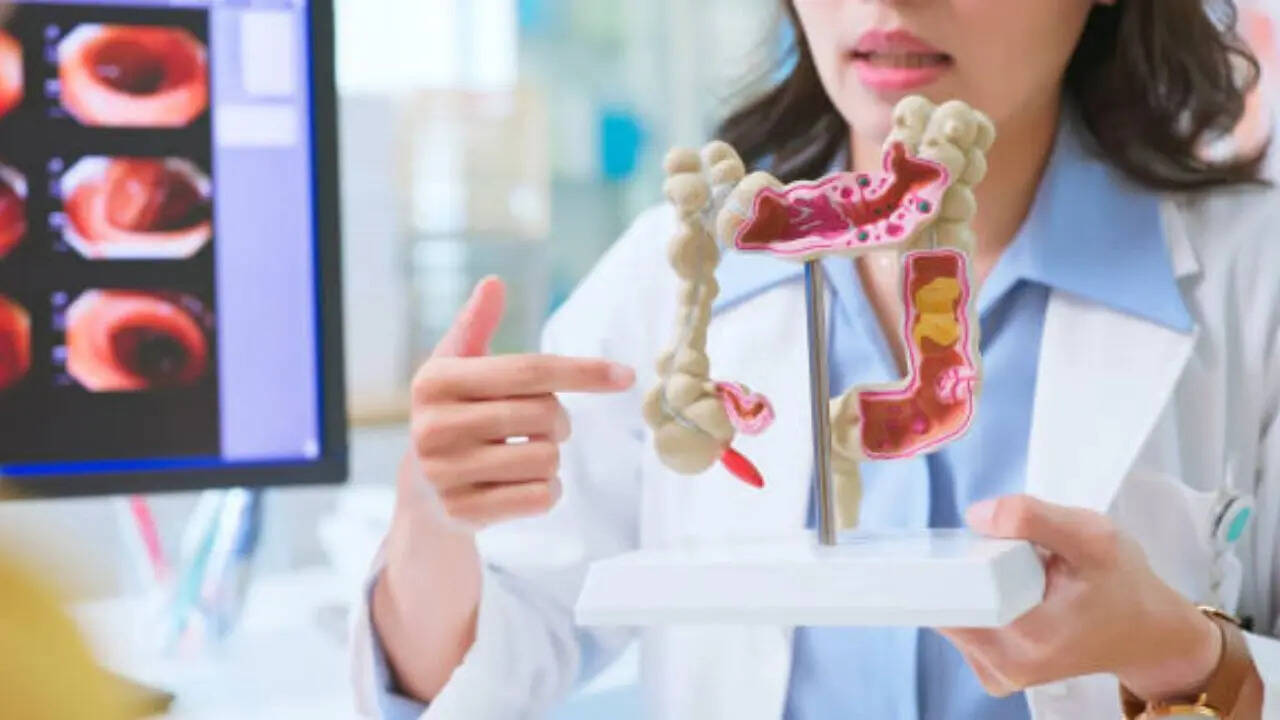Health
Young Entrepreneur’s Stage 4 Cancer Diagnosis Raises Awareness

A 29-year-old entrepreneur from Delhi, Monika Choudhry, has been diagnosed with stage 4 colorectal cancer, despite adhering to what she described as a healthy and clean diet. In a heartfelt social media post, Choudhry revealed that her unexpected diagnosis felt like a “brutal joke,” as she believed her lifestyle choices would protect her health.
Choudhry recounted her commitment to fitness and nutrition, stating that she avoided fried and oily foods. However, the demands of her work began to take a toll on her physical well-being. She noted, “When I started working on my website, I didn’t realise how demanding and all-consuming it would become.” As her work became increasingly sedentary, she noticed changes in her energy levels and overall health.
Initially attributing her fatigue to long working hours and mounting deadlines, Choudhry dismissed the warning signs her body was presenting. “Slowly, my body started giving signs: fatigue, uneasiness, discomfort,” she admitted, reflecting on how stress and neglect of her physical routine contributed to her condition.
Understanding the Risks of Colorectal Cancer
Health experts emphasize that no single factor guarantees a cancer diagnosis, but several lifestyle choices can significantly heighten risk. Daily stress, overworking, and inadequate sleep can weaken the immune system, leading to inflammation and hormone imbalance. While genetic predispositions also play a role, having one or more risk factors increases the likelihood of developing colon cancer.
The cancer originated in the large intestine, an area crucial for digesting food and eliminating waste. According to medical professionals, colorectal cancer often develops from polyps in the inner lining of the colon. Routine screening tests can detect these precancerous growths, enabling early intervention before the condition progresses.
Choudhry’s diagnosis serves as a wake-up call about the importance of maintaining physical health, particularly in high-stress environments. “Looking back now, I realise this wasn’t just about bad luck. It was a result of stress, burnout, and complete physical neglect over time,” she stated.
Recognizing Early Symptoms
Awareness of the signs and symptoms of colorectal cancer is crucial for early detection. Some key indicators include:
– **Blood in stool**: Presence of blood, either bright red or dark, should prompt immediate consultation with a medical professional.
– **Changes in bowel habits**: Persistent constipation or diarrhea lasting more than a few days necessitates testing.
– **Stomach pain**: Chronic abdominal discomfort without a clear cause is a warning sign that should not be ignored.
– **Bloating**: Ongoing bloating for an extended period may indicate underlying issues.
– **Unexplained weight loss**: Sudden weight loss can signal significant health problems.
– **Fatigue and breathlessness**: These symptoms may point to anemia, which can result from various health conditions.
As Choudhry continues her battle against cancer, her experience underscores the need for vigilance regarding health and wellness, particularly in a fast-paced world. By sharing her story, she hopes to inspire others to prioritize their physical health and to remain aware of the signs that may warrant medical attention.
-

 World5 months ago
World5 months agoSBI Announces QIP Floor Price at ₹811.05 Per Share
-

 Lifestyle5 months ago
Lifestyle5 months agoCept Unveils ₹3.1 Crore Urban Mobility Plan for Sustainable Growth
-

 Science4 months ago
Science4 months agoNew Blood Group Discovered in South Indian Woman at Rotary Centre
-

 World5 months ago
World5 months agoTorrential Rains Cause Flash Flooding in New York and New Jersey
-

 Top Stories5 months ago
Top Stories5 months agoKonkani Cultural Organisation to Host Pearl Jubilee in Abu Dhabi
-

 Sports4 months ago
Sports4 months agoBroad Advocates for Bowling Change Ahead of Final Test Against India
-

 Science5 months ago
Science5 months agoNothing Headphone 1 Review: A Bold Contender in Audio Design
-

 Top Stories5 months ago
Top Stories5 months agoAir India Crash Investigation Highlights Boeing Fuel Switch Concerns
-

 Business5 months ago
Business5 months agoIndian Stock Market Rebounds: Sensex and Nifty Rise After Four-Day Decline
-

 Sports4 months ago
Sports4 months agoCristian Totti Retires at 19: Pressure of Fame Takes Toll
-

 Politics5 months ago
Politics5 months agoAbandoned Doberman Finds New Home After Journey to Prague
-

 Top Stories5 months ago
Top Stories5 months agoPatna Bank Manager Abhishek Varun Found Dead in Well









